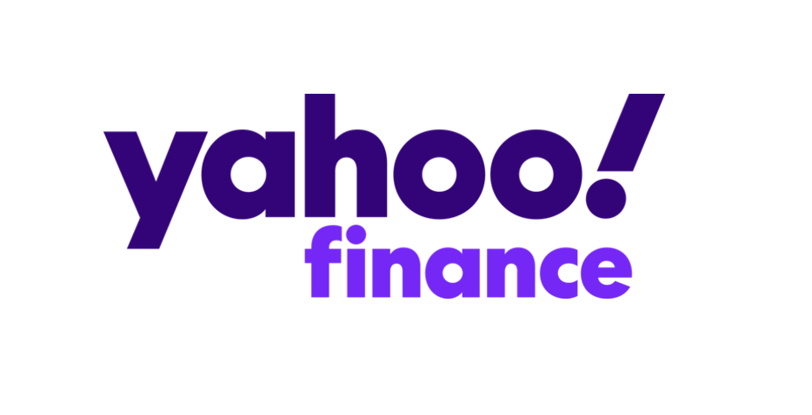Like many of you, the first thing I do when I wake up is check my phone. After turning off the alarms, I see notifications for various things - texts, email, Slack and Asana. Before I even get to work, Slack informs me of questions I need to respond to, while Asana helps me keep track of my various tasks. These applications and other similar software have become a vital part of my work routine, and though daunting to use at first, they now are integrated seamlessly into my work. I'm probably a lot like you and the rest of the working world, which is why SaaS, and in particular Enterprise Software as a Service (SaaS), is here to stay.
From streamlining complex workflows to unlocking unprecedented collaboration, Enterprise SaaS has become the driving force behind the success of large organizations. Companies offering these products are working to solve the many complexities that come with our current work landscape - remote work, collaborating at scale, automating tasks and keeping on top of numerous obligations.
Enterprise SaaS describes the delivery model of software applications specifically designed for large organizations and enterprises. SaaS itself is a software distribution model where software is hosted and provided over the internet as a service, rather than being installed and maintained on individual computers or servers1.
Enterprise SaaS takes this concept a step further by catering to the unique needs and requirements of large-scale businesses. These applications are typically feature-rich, scalable, and designed to handle complex business processes, workflows, and data management. Enterprise SaaS solutions provide extensive customization options and integration capabilities, often enhanced with artificial intelligence and machine learning, to align with the specific needs and technology of an organization
What are some examples? Think of the tools you likely use for work. Examples include enterprise resource planning (ERP) software, customer relationship management (CRM) systems, human resources management (HRM) platforms, project management tools, collaboration software, and many more. These applications are accessed and used by enterprise employees through web browsers or dedicated client software, eliminating the need for local installations and enabling remote access from various devices.
Investments in this Space
Enterprise SaaS has experienced significant growth in recent years and continues to show promising investment potential. As businesses increasingly adopt cloud-based software solutions, the demand for Enterprise SaaS is expected to continue growing. In fact, the overall “global enterprise software market was worth USD 201.05 billion in 2022 and is expected to grow at a 11.74% compound annual growth rate (CAGR) from 2023 to 2032”2. This growth can lead to attractive investment returns for investors.
These companies also typically operate on a subscription-based model, generating recurring, predictable revenue streams. According to the Harvard Business Review, “Subscription businesses grew [revenue] more than 300% from 2012–2018, about five times faster than revenues of S&P-500 companies.”3 This predictable revenue model provides stability and visibility, as customers often sign long-term contracts and renew their subscriptions regularly.
Their scalability enables better reach at lower costs. Enterprise SaaS companies can scale their operations more efficiently compared to traditional software companies. Once the software infrastructure is built, adding new customers often incurs minimal additional costs. This scalability can result in higher profit margins as the customer base expands. Moreover, Enterprise SaaS eliminates the need for on-premises installations and maintenance which reduces the upfront costs and ongoing expenses for customers. The lower barrier to entry and cost-effectiveness of SaaS solutions make them more attractive to businesses, leading to wider adoption and potential market growth.
The Enterprise SaaS companies have also proven to be attractive M&A targets. The market has seen significant consolidation as companies can be strategic targets for established technology companies and private equity firms. These SaaS companies are focused businesses that serve to strengthen the acquirer's product portfolio or allow them to enter new markets. These acquisitions often involve substantial valuations with notable examples including Salesforce's acquisition of Slack for approximately $27.7 billion in 2020 and Thoma Bravo's acquisition of Sophos, a cybersecurity SaaS company, for approximately $3.9 billion in 2019.4,5 This acquisition activity can present exit options for investors, potentially driving significant returns on investment.
The Private Market Opportunity
The unique advantages of the Enterprise SaaS business model as well as other competitive factors have spurred significant investment into these companies while private. Per Pitchbook, Inc., venture capital firms, which play a crucial role in funding early-stage and growth-stage Enterprise SaaS companies, have invested a record high of over $76.5 billion across various stages of funding, including seed, early-stage, and late-stage in Enterprise SaaS companies in 2021, which represented a substantial increase from previous years. This is particularly notable since investments in Enterprise SaaS significantly eclipse those in other industries like E-Commerce (which had a record high of $47.9 billion in 2021) and Digital Health (which had a record high of $16.3 billion in 2021).
Enterprise SaaS companies have attracted large funding rounds, often known as mega rounds, which involve investments of hundreds of millions or even billions of dollars. For example, in 2021, UiPath, a leading Robotic Process Automation (RPA) platform, raised approximately $1.34 billion in its initial public offering (IPO).6
Later stage private equity firms have also shown interest in the Enterprise SaaS space. PE firms typically invest larger amounts of capital into mature SaaS companies to fuel their growth and expansion. The exact figures can vary widely, but there have been notable PE investments exceeding hundreds of millions of dollars. According to Pitchbook, Inc.’s report on Enterprise SaaS, “Q1 2023 saw $13.9 billion generated across 363 deals. Deal value saw an increase of 18.5% from the previous quarter, attributed largely to Stripe’s $6.5 billion raise.”7
Tailwinds from Macro Trends
Several macro trends have had a significant impact on investment opportunities in Enterprise SaaS. These trends shape market dynamics, influence customer needs and preferences, and drive investor strategies.
Here are some key macro trends that affect investment in Enterprise SaaS:
- Cloud Computing Adoption: The widespread adoption of cloud computing has been a major driver for Enterprise SaaS investment. Organizations are increasingly moving away from on-premises software installations to cloud-based solutions due to the scalability, cost-efficiency, and flexibility they offer.8
- Remote Work and Collaboration: The COVID-19 pandemic has accelerated the adoption of remote work and collaboration tools. SaaS companies offering video conferencing, project management, and remote collaboration tools are particularly attractive to investors in light of this trend. Even in a post-pandemic world, a growing global workforce is maintaining the need for these tools.
- Industry-Specific Solutions: There is a rising demand for industry-specific or vertical-specific Enterprise SaaS solutions.9 Different industries have unique requirements and regulatory environments, prompting investors to focus on SaaS companies that develop specialized software for specific sectors such as healthcare, finance, retail, or manufacturing. Vertical-specific solutions that address industry pain points and workflows have high investment potential.
- Low-Code/No-Code Development: The rise of low-code/no-code development platforms, a market expected to grow 20% in 2023, are transforming the software development landscape.10 These platforms enable citizen developers with limited coding expertise to build applications quickly and efficiently.
These macro trends create new opportunities for software solutions and shape the investment landscape for Enterprise SaaS, highlighting the importance of aligning with evolving market needs and preferences. It's crucial for investors to evaluate SaaS companies based on their ability to address key trends and capitalize on the market opportunities they present.
Private Companies Specializing in Enterprise SaaS
There are numerous private companies that provide Enterprise SaaS solutions across various subsectors. Here are some popular private companies in the Enterprise SaaS space:
Remote Work and Collaboration:
- Coda: Coda creates online documents and the utility of applications into a single new canvas. By blending the flexibility of a document, the power of a spreadsheet, and the utility of applications into a single new canvas, Coda enables anyone to make a document as powerful as an app. Coda is something entirely new, that looks and feels familiar. Makers start with a blank canvas and a familiar blinking cursor, but can use a new set of building blocks like tables that act like databases, or buttons that take action to create their own unique solutions.
- Miro: Miro offers a collaborative whiteboard platform that is designed to allow distributed teams to work together. Support includes running brainstorming sessions and workshops as well as planning projects and designing new products and services. Miro has over 7 million users and 20,000 paying customers, including 80% of the Fortune 100. Miro provides integrations with applications like Atlassian JIRA and Confluence, Sketch, Slack, Trello, Box, and Google Drive.
Industry-Specific Solutions:
- Postman: Postman is an API development environment, used by more than 20 million developers and more than 500,000 organizations worldwide. The company offers a platform for developers or enterprises to build, test, and debug their APIs. Postman claims to enable API-first development, automated testing, and developer onboarding.
Cloud Computing Adoption:
- Sauce Labs: Sauce Labs provides cloud-based testing for mobile and web applications. Sauce Lab's goal is to help organizations increase revenue and grow their digital business by creating new routes to market, protecting their brand from the risks of a poor user experience, and delivering products to market.
With a sizable market opportunity and increasing focus on automation in the workplace, Enterprise Saas is poised for continued growth. From lower barriers to entry, high customer lifetime value, scalability, predictable revenue streams, potential for market consolidation and acquisitions, ability to hone in on key macro trends and needs, SaaS remains an attractive model to bring in new innovators focused on improving business processes. Considering these factors, investing in the Enterprise SaaS space can present attractive opportunities for investors. Take a look at our listings page to learn more about private companies building innovative software to improve collaboration, work processes and even entire industries.
Sources
- Investopedia. December 2022
- GlobeNewsWire. June 2023
- Harvard Business Review. April 2023
- NY Times. December 2020
- Sophos. October 2019
- CNBC. April 2021
- Pitchbook, Inc. May 2023
- McKinsey. April 2018
- Foley & Lardner LLP. May 2023
- Gartner. December 2022







